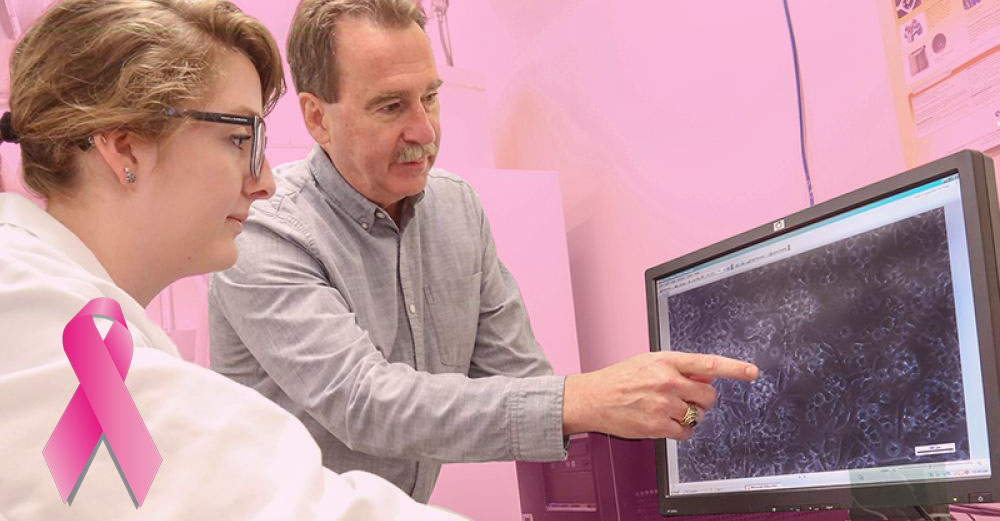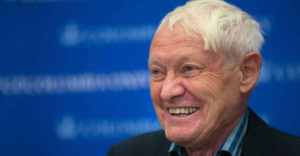
According to The World Health Organization, breast cancer is the most commonly diagnosed cancer, aside from skin cancer, for women. To put it into perspective, one in eight women born today in the United States will get breast cancer at some point throughout their lives. Yearly, approximately 252,710 women and 2,470 men in the United States will be diagnosed with breast cancer and more than 40,500 women and 460 men will die from the disease. Breaking it down even further, every two minutes a woman is diagnosed with breast cancer and one woman dies of breast cancer every 13 minutes.
These startling statistics led individuals from different sectors – medical, academia, research, philanthropic, government – to work together to raise awareness surrounding breast cancer prevention. To help combat this epidemic, Breast Cancer Awareness Month (BCAM) came to life in October, 1985. The goal of BCAM is to raise awareness about the importance of early detection of breast cancer, especially because most individuals survive breast cancer if it’s detected and treated early on.
The recommended combination for breast cancer prevention, as outlined by the National Breast Cancer Foundation, is as follows: mammograms, education, support, and early detection. Keeping these variables in mind, SUNY researchers from three of our campuses are currently exploring other ways to help detect and prevent breast cancer.
SUNY is taking the fight to breast cancer
At SUNY, our campuses are involved in all kinds of research focusing on cancer care, diagnosis, and prevention. Some of the work being done around breast cancer is noteworthy in itself.
SUNY Poly
The faculty at SUNY Poly are deeply involved in fighting breast cancer and finding ways to defeat it. Currently, a team of researchers, lead by Dr. Scott Tenenbaum, are working to develop an in-house, diagnostic tool that will help individuals in remission monitor the early signs of the cancer returning, otherwise known as a metastatic relapse. The concept is to create a test that is similar to an in-home pregnancy test by using a urine sample and that can be performed routinely each month.
In addition to the diagnostic test, SUNY Poly was part of a consortium who received a five-year grant, totaling $2.9 million from the National Institutes of Health, National Cancer Institute to better understand how breast cancer cells spread. The research program will use current imaging and microfluidics technologies to identify, quantify, and find cells that affect tumor progression, metastasis, and chemotherapy resistance. The overall goal is to create more effective treatment.
Dr. Castracane, one of the Primary Investigators of the research project, aims to better understand the triggers for breast cancer cell metastasis with his team of colleagues and graduate student researchers. The students will experience valuable, hands-on opportunities, and the entire team will work with the following partnering universities: Einstein, Mount Sinai Medical Center, and the University of Wisconsin-Madison. Through collaboration, the multiple-institution team will carry out clinically relevant research to answer questions that previously couldn’t be explored.
University at Buffalo
Earlier this month, University at Buffalo researcher Jun Xia, PhD, was awarded a $450,000 grant from Susan G. Komen to extend his research on photoacoustic computed tomography. This noninvasive imaging technique combines light and ultrasound technology and has the potential to better detect breast cancer, identify the cancer earlier, and provide increased access to breast cancer screening for more women.
Specifically, the technology aims to solve the problem created by dense breast tissue: dense breast tissue reduces the ability of mammograms to identify cancer from 87% to 30%. More than 40% of women have dense breast tissue, so Xia’s research will help improve the quality of life for many individuals diagnosed with breast cancer and lead to earlier detection of breast cancer.
Upstate Medical University
This past March, two Upstate Medical University faculty members were each awarded $360,000 grants from New York State to continue their research on breast cancer treatments.
Dr. Mira Krendel is interested in understanding how a protein, Myosin 1e, affects tumor progression and metastasis in breast cancer. Myosin 1e is found in larger numbers in tumor samples from patients who have invasive breast cancer with a bleak prognosis, so it’s important to understand the role that Myosin 1e plays.
Dr. Juntao Luo is using the grant to create a targeted drug delivery system to better treat breast cancer brain metastases (BCBMs), which occur in one-third of patients diagnosed with triple negative breast cancer. This delivery method hopes to solve the problem of medication and therapeutics not being able to fully cross the blood-brain barrier, causing medication to not be as effective.
Whether it’s your wife, daughter, sister, grandmother, aunt, a loved one, a friend, or even yourself, the statistics show that breast cancer doesn’t discriminate. Yet, there is hope. Between efforts put forth by Breast Cancer Awareness Month and research being conducted at institutions within the SUNY System and beyond, women will be able to lead happier, healthier and breast cancer-free lives.
Breast Cancer Awareness Month is October. But that’s not the only time of year that advocacy and awareness are needed. We can work to defeat breast cancer all year long. For more information on how you can get involved, visit nationalbreastcancer.org to learn more.



